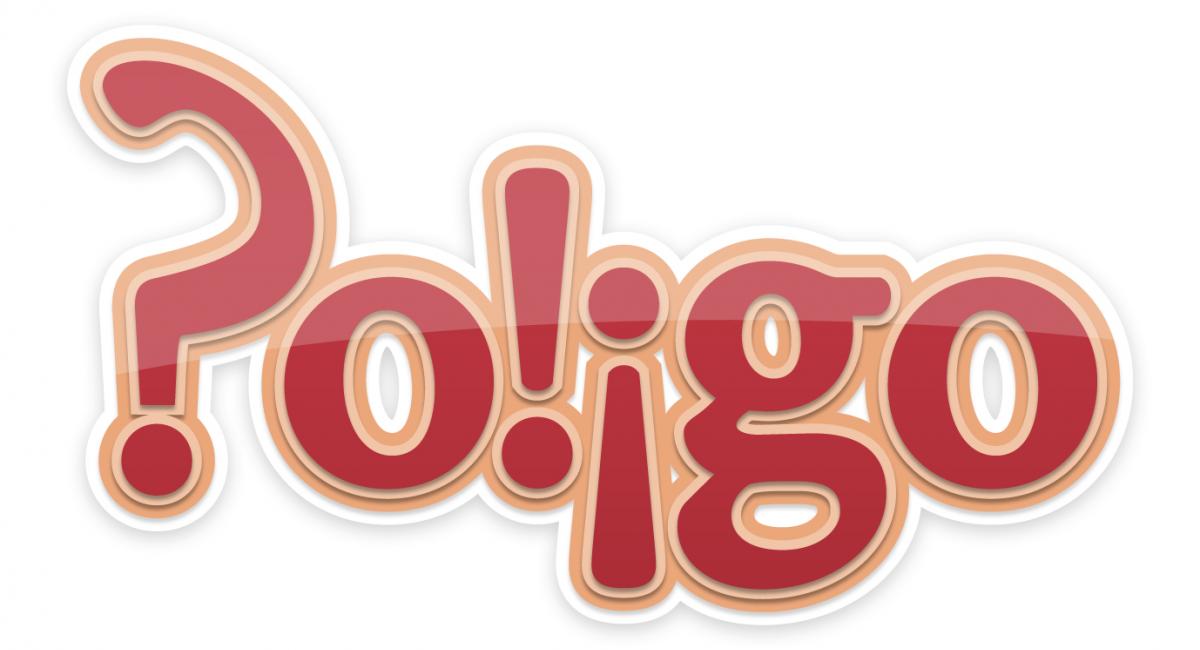The original Poligo logo from 2007
In 2004, I arrived in Japan, fresh out of graduate school. I planned to stay a year and work and save some money. Then I wanted to have a holiday in Europe, and after that, go back to NZ to do a PhD. in economics. Then I supposed I would get a job in government or some kind of NGO. I got a job as an English teacher in Shinjuku, and there I met a young Brazilian woman (she was studying at university in Chiba and teaching English part-time). I soon realised that I did not want to leave her or Japan, and so I decided to stay while she completed her Master's degree, and then a PhD.
But after a year or two of teaching, I started to get bored. I had always been interested in the Internet and in starting my own business, so I started thinking about what I could do. My first idea was too big and too expensive (I won't say what it was, because I still plan to do it!). Then I realised that I could create a service to help my students (and me) do a better job of learning (and teaching) English.
Genesis
A number of things came together that gave me the idea for Poligo, each raising its own question.
How can I teach better?
The first thing was from the perspective of being a teacher. Most of my students made this claim:
I can read and write English, but I just can't speak it.
which was, in fact, utter rubbish. They thought they could read and write, but their writing was universally terrible (from a language stand point and a in terms of logic and communication). Furthermore, if pressed, they in fact did not understand very well what they were reading. The just thought they did.
As a result, I would give a lot of writing homework, and then correct it in class. This took time, and it was inefficient. It cut down on speaking time for the student, but it was valuable and they always learned a lot from these sessions.
"If only there was a way to take this writing stuff out of class..." I wondered.
The second thing that is frustrating about teaching conversation classes was that you can't possibly correct every mistake a student makes—if a student is low level, they make too many; if a student is high level, they speak too fast. The result is that a teacher has to make a split-second decision about what is worth correcting and what should be left for another time. We decide if something is important enough to teach, or if the point is suitable for the student's level, that we will interrupt, correct and teach. Otherwise, sometimes, you have to leave mistakes for another time.
The result of this is that a student starts to think that they are making fewer mistakes than they actually are. This is particularly true if they use English with native speakers. A native speaker is not going to correct a learner when they make a mistake (it's rude) and so the learner thinks, because communication is going well, that they are speaking English well.
"How could I help my students understand and see all the mistakes they make?" I asked myself.
The third frustration I had was that I was not allowed (because of the school rules) to have contact with my students outside of class time. This was ridiculous, and meant that my students were left with no support for the 165 hours a week that they were not in my class.
"There must be a way to help my students when they are not at school," I thought.
A final short-coming of English classes is that they are a transient experience. The class finishes and all you have are the notes, or maybe a recording.
"How can I give my students a learning experience that lasts?" I said to myself on many an occasion.
How can I work better?
On top of all of this, there were aspects of my job that I disliked.
One was that I did not like having to commute. It was a pain and wasted a lot of time. Plus, Shinjuku is a horrible, noisy, crowded place for a country boy like me. I wanted to work from home.
On top of that, I didn't like to work for the school I was working for. I thought that they were just in the business to make money. I wanted to teach my students in the best way I could. I wanted to be free to help students in the best ways I could, without silly rules and restrictions.
The biggest thing was the fact that everyone makes the same mistakes. Seriously. I found myself repeating myself again and again and again. I needed to find a way to discover people's mistakes and misunderstandings, and then refer them to the lessons they needed to learn.
How can people learn better?
While I was teaching English, I was learning Japanese. As some of you know, I have been learning Japanese since 1990. It's far too long, and my level is not as high as I wish, but it's fun. I had studied in Tokyo in 1995, and my main reasons for coming back to Japan after university were to reconnect with the land I loved, eat some a lot of ramen, and to improve my Japanese.
But then I got a job teaching English. In English.
This was (I thought) a disaster for my Japanese. However, I devised three ways to work on my Japanese.
- Students would not know words, so we looked them up together and I wrote them in a notebook (some of you reading this will remember I always had a dictionary and a notebook on my desk).
- I would try to think in Japanese as I was speaking in English about how I would explain or say what I was saying in Japanese if I needed to. This was because...
- Sometimes students did not understand things, and as a last resort, I would translate things into Japanese for them.
This was not enough, and I could feel my Japanese was not improving as fast as I had hoped.
I decided to try a language exchange, and so a couple of times I tried this with co-workers. It was a big waste of time. Native speakers do not automatically make good teachers, and nobody could answer my questions.
I thought about taking classes, but it was hard to find something that matched my level. So I looked up my old Japanese teacher, and she was interested in meeting (she is the best teacher I have ever had, by the way). I could teacher her English and she would teach me Japanese. We did this for a while, and it was really helpful, but it always took up half a day (she lived in Saitama and I lived in Tokyo at the time, so we met halfway). It was so inconvenient. I was really impressed by my students who would come to class every week without fail. I was not able to do that.
After a time, I gave up classes, but I would email my teacher a lot. She always replied, with corrections on my mistakes and using new interesting Japanese. And at the time, I was also writing a lot of emails to friends in Japanese as well.
That was when I noticed something: my spoken Japanese was getting better. How could this be? I was hardly speaking Japanese at all. Part of it was subconscious learning. I was living in Japan after all, and hearing and reading it all the time. I think another aspect was I was spending a lot of time on the train during my commute carefully composing these emails. I would look things up when I did not know a word or expression and use that in my messages. I would delete and re-write stuff all the time.
I realised that the process of writing thoughtfully, and of carefully constructing sentences with new words and grammar, was filtering into my spoken Japanese. I was using new words. My sentence structure was better. I could understand more. My reading was improving. And all these things were feeding on each other and having a multiplier effect. I had found an effective way to improve my Japanese skills when I was unable to use Japanese day to day, and too busy to take classes!
The spark
As I mentioned at the start, I have always wanted to start a business, and I had an idea that I knew I could not do. I was sure I could do something, but I did not know what. Then one day, all these things were bubbling and brewing in my mind and I had the spark of an idea: I'll just check people's writing online! It seemed to solve all my problems, but there was one major hitch: I had no idea how to do it!
—
This is far too long, and if you have read it all, thank you. It's nice to get this history down, and I think that some of you might be interested. I'm going to write more about this. Next time, I'll talk about how I went from "I have an idea" to making something, and I will introduce you to the secret magic man who made Poligo a reality.



Comments
Hi Matthew,
Hi Matthew,
I'm really impressed with this article. I realized again how fortunate I am to have found Poligo, which has made learning English fun and rewarding for me, and surely for other students here as well. I'm very grateful for that and looking forward to reading the next part of the story! ;)
Cool!
Hi Rio,
Thanks for leaving a comment. It is really encouraging to know that people read what I write and find it interesting. I hope to write the next part this week.
Matthew